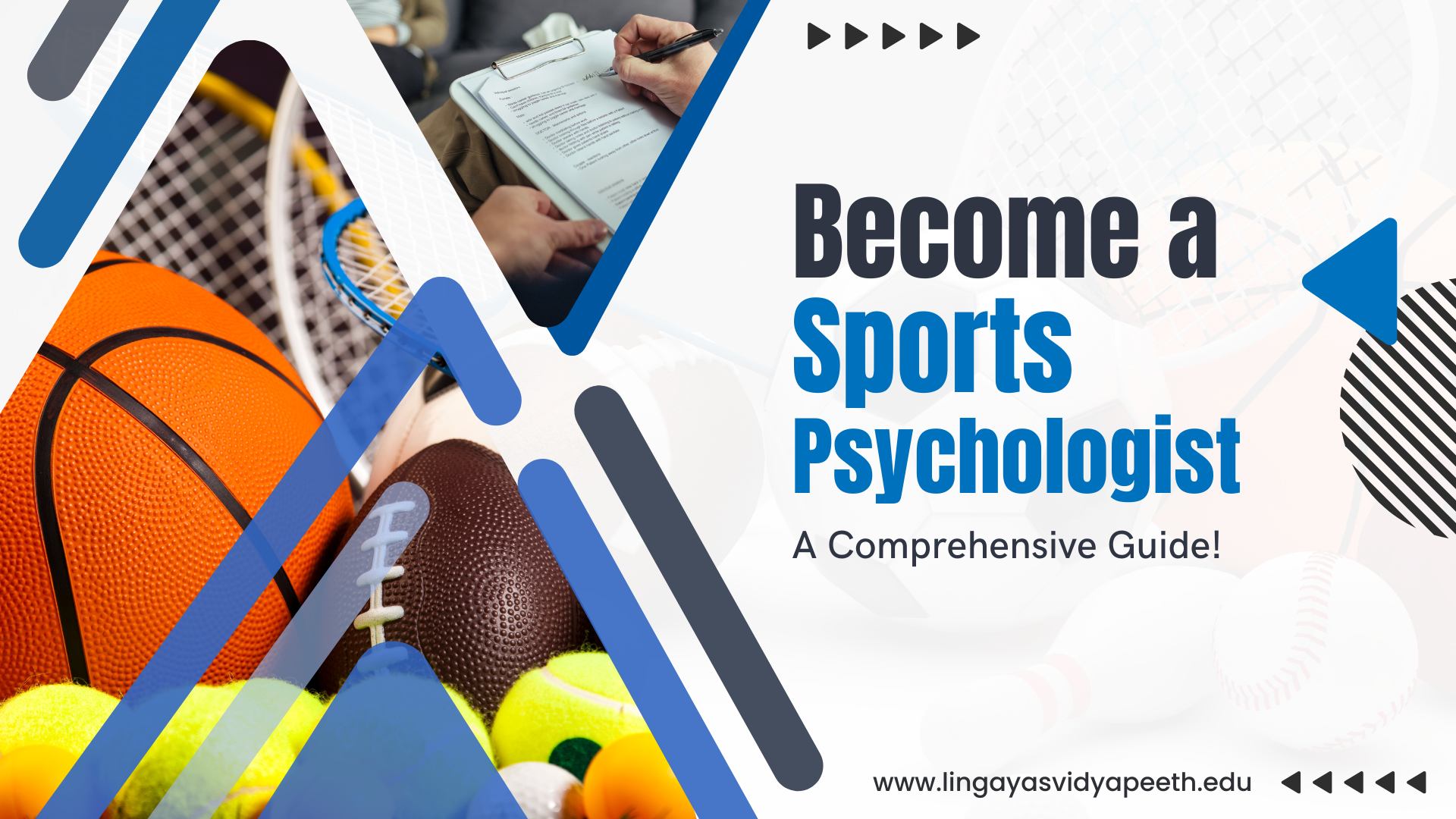Home » How to Become a Sports Psychologist? A Comprehensive Guide!

A sports psychologist is a specialized professional who applies principles of psychology to help athletes enhance their performance, mental skills, and overall well-being. They work with athletes to address issues such as goal setting, motivation, stress management, confidence building, and performance anxiety.
Sports psychologists wear many hats, but their core responsibility lies in optimizing athletic performance and mental well-being. They achieve this through a variety of tasks, including:
Step 1: Lay the Foundation
Start by obtaining a bachelor’s degree in psychology or a related field. While specific undergraduate majors may vary, coursework in psychology, kinesiology, or sports science will provide you with a solid foundation for future studies.
Step 2: Gain Practical Experience
Immerse yourself in the world of sports by gaining practical experience. Seek internships, volunteer opportunities, or part-time positions that allow you to work directly with athletes. Coaching, sports therapy, or mental skills training are excellent avenues to begin applying psychological principles to enhance athletic performance.
The Lifechanging Power of Exercise: Forget Depression and Anxiety
Step 3: Pursue Advanced Education
To practice as a sports psychologist, you’ll need to earn a master’s or doctoral degree in sports psychology or a related field. Research graduate programs that align with your interests and career goals. Coursework typically covers topics such as sports psychology theory, performance enhancement techniques, counseling skills, and research methods.
Step 4: Obtain Licensure or Certification
After completing your graduate education, obtain licensure or certification to practice as a sports psychologist. Requirements vary by jurisdiction, but typically involve completing supervised clinical hours and passing a licensing exam. Certification from organizations such as the Association for Applied Sport Psychology (AASP) can further enhance your credentials.
Step 5: Specialize and Build Your Practice
Specialize in areas such as performance enhancement, injury rehabilitation, or team dynamics. Network with coaches, athletes, and sports organizations to build your practice. Marketing your services through online platforms, workshops, and seminars will help attract clients. Consider conducting research and publishing articles to establish yourself as an expert in the field.
Step 6: Stay Current and Continue Learning
The field of sports psychology is constantly evolving. Stay up-to-date with the latest research and developments by attending conferences, workshops, and continuing education courses. Engage with colleagues and mentors to exchange ideas and stay inspired in your practice.
Unravelling the Intellect through Freud’s Psychodynamic Theory
Conclusion:
Becoming a sports psychologist is a rewarding journey that requires dedication, education, and practical experience. By following these steps and embracing opportunities for growth and development, you can make a meaningful impact in the lives of athletes and contribute to their success on and off the field. So, lace up your mental cleats and embark on the path to becoming a sports psychologist.
Study psychology at Top University in Faridabad, Lingaya’s Vidyapeeth to unlock your potential and embark on a transformative journey of self-discovery and academic excellence. Our dynamic curriculum, led by renowned faculty, offers hands-on experience and cutting-edge research opportunities. With state-of-the-art facilities and a supportive learning environment, you’ll gain the knowledge and skills needed to thrive. Join us at Lingaya’s Vidyapeeth and pave the way for a fulfilling career in psychology. Join now!
From
Harshita Goyal
Associate Professor, HOD
School of Humanities & Social Sciences
Lingaya’s Vidyapeeth
Best College in Faridabad for BA Psychology
RECENT POSTS
CATEGORIES
TAGS
Agriculture Agriculture future AI Architecture artificial intelligence Bachelor of Commerce BA English BA Psychology BTech AIML BTech CSE BTech cybersecurity BTech Engineering Business management career Career-Specific Education career guide career option career scope Civil engineering commerce and management Computer Science Computer science engineering Data science degree education Engineering Engineering students English Literature english program Fashion Design Fashion design course Higher Education Journalism journalism and mass communication law Law career Machine Learning mathematics MBA MBA specialization Mechanical Engineering Pharmacy Psychology Research and Development students
Lingaya's Vidyapeeth (LV) only conducts physical/online verification of any document related to examination on the following official email IDs:
It is important to note that the following email IDs and domains are fraudulent and do not belong to our university:
Please do not respond to or share any personal information with these fraudulent sources.